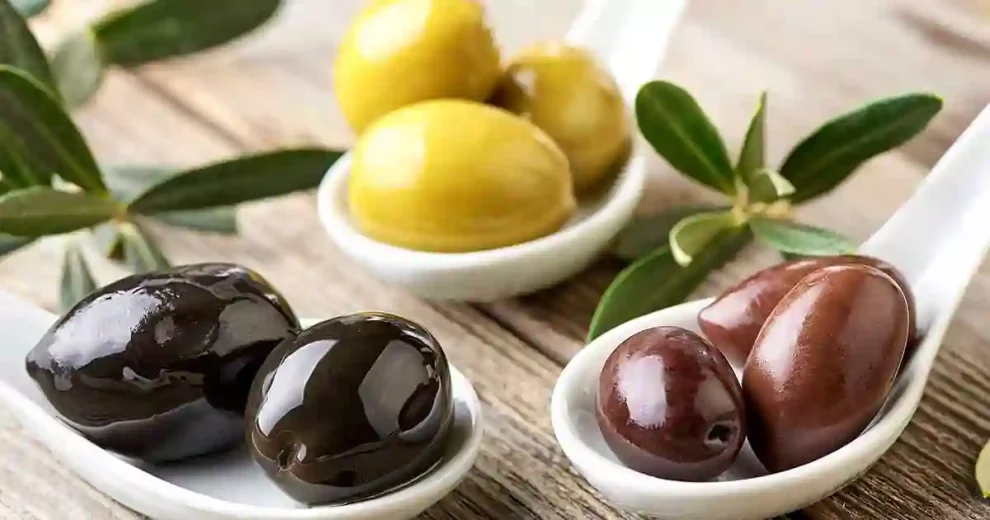There are many benefits to eating olives, from reducing inflammation in the body, to protecting against cancer. They also improve heart health, and help prevent bone loss. Read more wellhealthorganic.com:health-benefits-and-side-effects-of-olives-benefits-of-olives
They contain high amounts of antioxidants, like vitamin E. These compounds fight free radicals that can damage your cells and lead to disease.
Antioxidants
Olives and their oil are rich in antioxidants, which help fight free radical damage. These can lead to serious health problems, including heart disease and cancer.
The antioxidants found in olives are mainly phenolic compounds, including polyphenols such as hydroxytyrosol and tyrosol. Other antioxidants include vitamin E and oleuropein.
Antioxidants in olives prevent lipid oxidation in cellular membranes and therefore promote healthy aging. They also protect cells from viruses, bacteria and fungi.
To increase and maintain the antioxidant nutrients in both EVOO and table olives, agronomic and technological practices need to be improved. In particular, organic farming has been shown to increase the level of secoiridoids in EVOO [51].
Anti-ageing
Olive oil can help to hydrate skin, improve elasticity and reduce the appearance of fine lines and wrinkles. It contains fatty acids and antioxidants that can prevent moisture loss.
Olives also contain polyphenols that help to reduce oxidative stress in the body and protect against premature aging. These antioxidants can be found in high-quality extra virgin olive oil, which is produced without chemical or heat treatments.
Olives are also a good source of squalene, which helps to moisturize skin. They are also rich in vitamins A, E and K, which can help to reduce oxidative stress and reduce the effects of free radicals on skin cells.
Weight loss
Olives can help you lose weight in a number of ways. They boost your metabolism, which means you burn more calories and get more energy – all of which is important for shedding pounds and keeping them off.
The monounsaturated fats in olives can also increase satiety, making you feel fuller for longer, which reduces the amount of food you eat over time. They also improve insulin sensitivity, which can be helpful for controlling your appetite.
Eating a handful of olives as a snack before lunch or dinner can keep you feeling satisfied and help you cut down on unnecessary portions. But be sure to choose fresh or cured, low-sodium options when possible; canned olives can have more sodium than they should.
Anti-inflammatory
Olives are anti-inflammatory because they contain a variety of phytochemicals. Oleuropein, for example, breaks down to hydroxytyrosol and has a calming effect on inflammation (like ibuprofen).
The phenolic compounds in olives also help protect your joints from injury. This happens because they reduce pro-inflammatory cytokines such as IL-6, TNF-a, and COX-2.
Additionally, they prevent oxidative stress from causing inflammation by neutralizing the free radicals that can harm your body and cause disease.
In addition to these benefits, olives are packed with heart-healthy monounsaturated fats, which can help shrink your risk of cardiovascular disease. And they deliver a nice dose of iron, an essential mineral that helps your body produce energy and fight off infection.
Heart health
In addition to being a great source of vitamin E, olives are also rich in antioxidants. These include oleuropein, which is the main antioxidant in raw olives, and hydroxytyrosol.
These antioxidants protect your cells from damage and can help reduce your risk of cancer, heart disease, and other serious health conditions. They also fight free radicals and improve your brain function.
Olives are a good source of heart-healthy monounsaturated fats, which can help reduce your LDL cholesterol levels and raise your HDL “good” cholesterol. They’re also full of anti-inflammatory and antioxidant polyphenols, a type of phytochemical that can lower your risk of developing chronic diseases like heart disease, diabetes, and some cancers.
While olives are packed with nutrients, they are also high in sodium, a major concern for people who are trying to limit their salt intake. This is especially true for canned, bottled or brined olives.
















Add Comment